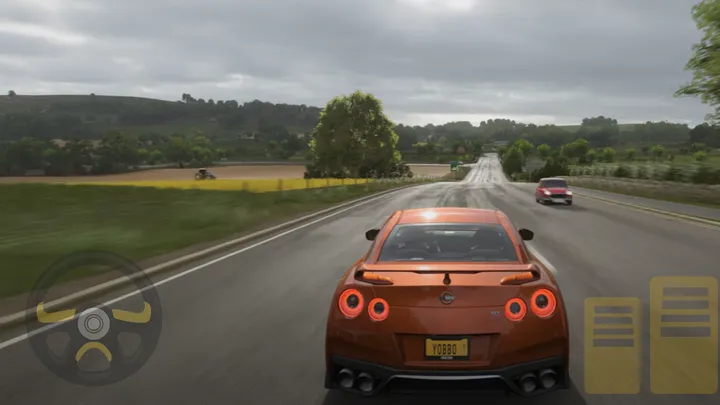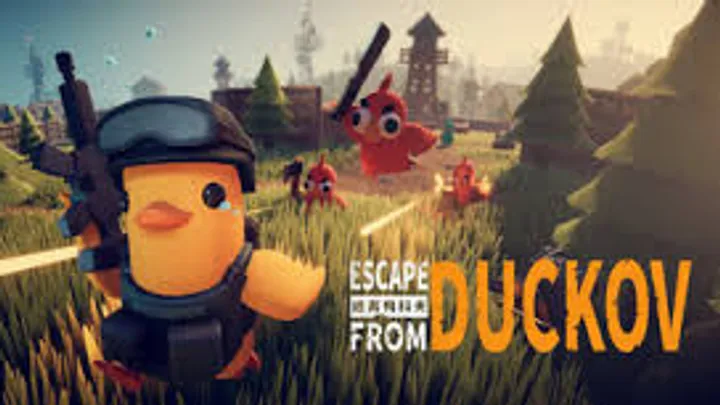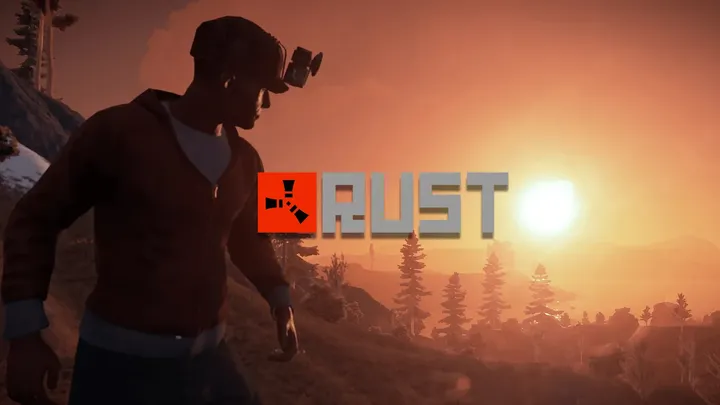Introduction
Rust is a highly competitive multiplayer survival game that challenges players to survive in a harsh, open-world environment. From scavenging resources and building bases to engaging in PvP combat and forming alliances, Rust tests both strategy and skill. Players must manage hunger, thirst, and health while fending off wildlife, environmental hazards, and rival players. Success in Rust requires a balance between risk and reward, careful planning, and adaptability. This guide will teach you how to master all aspects of Rust, from starting out as a lone survivor to leading a clan in large-scale raids.
1. Understanding Rust Fundamentals
Before venturing into the world of Rust, it is crucial to understand the core mechanics that govern survival and combat.
Game Mechanics:
- Gather essential resources like wood, stone, and metal to craft tools, weapons, and armor.
- Manage vital stats including health, hunger, and hydration to prevent death.
- Use crafting stations and workbenches to create advanced items, weapons, and explosives.
Environment Hazards:
- Wildlife, including wolves and bears, can attack unexpectedly and must be dealt with carefully.
- Radiation zones, falling from cliffs, and exposure to cold or heat can damage your health.
- Other players pose the greatest threat; PvP combat is intense and often unpredictable.
Pro Tip: Spend time exploring safe areas first and learn the layout of the terrain to avoid getting trapped or ambushed early in the game.
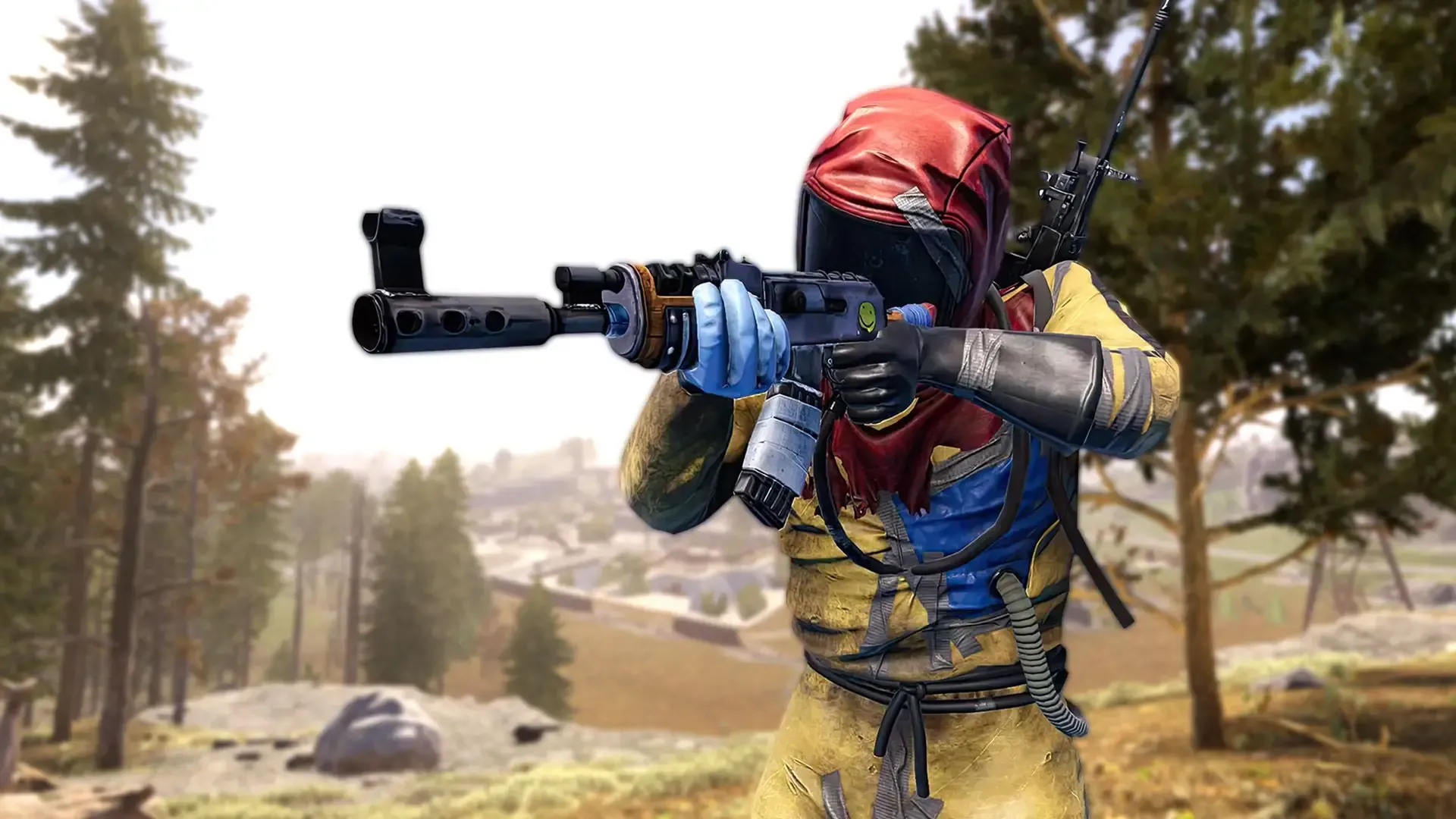
2. Efficient Resource Gathering
Resources are the lifeblood of survival in Rust. Collecting them efficiently ensures you have the materials to build, craft, and defend yourself.
Types of Resources:
- Wood: Collected by chopping trees, essential for early tools, fire, and basic base construction.
- Stone and Metal Ore: Used to craft weapons, armor, and fortified structures.
- Cloth and Leather: Gathered from animals and plants; used for clothing, armor, and basic crafting.
Farming Strategies:
- Prioritize resource-rich areas but avoid high-traffic zones where aggressive players roam.
- Use the correct tools to maximize collection rates: pickaxes for rocks, hatchets for trees.
- Regularly farm animals for meat, leather, and fat for cooking and crafting purposes.
Pro Tip: Always carry extra tools and materials while exploring, as running out can leave you vulnerable to attacks or environmental dangers.
3. Crafting Weapons, Tools, and Armor
Crafting is essential to survive Rust’s hostile environment and defend yourself against other players.
Essential Tools for Beginners:
- Hatchet: Useful for cutting wood and can be used as a melee weapon.
- Pickaxe: Used for mining stone, metal, and sulfur.
- Basic Bow or Spear: Early defense against wildlife and other survivors.
Advanced Weapons and Armor:
- Upgrade from basic melee weapons to firearms as soon as you acquire resources.
- Armor increases your survivability in PvP combat and against environmental hazards.
- Always carry repair kits to maintain durability of weapons and tools.
Crafting Priorities:
- Early focus should be on survival tools, basic weapons, and a temporary base.
- Once stabilized, shift resources to stronger weapons, ammunition, and advanced armor.
Pro Tip: Prioritize weapons that suit your playstyle. Ranged combat can help you avoid direct confrontations, while melee weapons are better for close-quarter raids.
4. Building a Secure Base
A secure base is essential for storing resources, protecting yourself, and surviving raids.
Selecting a Location:
- Choose a location near resources but away from high-traffic areas to reduce the chance of raids.
- Build near cliffs, forests, or elevated areas for natural defenses.
- Avoid monument-heavy areas unless prepared for high-level PvP encounters.
Base Construction Tips:
- Start with wood for quick protection, then upgrade to stone and metal for durability.
- Incorporate honeycombing, airlocks, and multiple layers to make raiding more difficult.
- Use door placement strategically to funnel attackers and protect loot rooms.
Advanced Base Design:
- Hidden stashes in difficult-to-reach locations can save critical loot during raids.
- Traps, turrets, and external walls increase your defensive capabilities.
- Consider building multiple smaller bases instead of a single large one for redundancy.
Pro Tip: Regularly maintain and upgrade your base to prevent it from being an easy target for raiders.
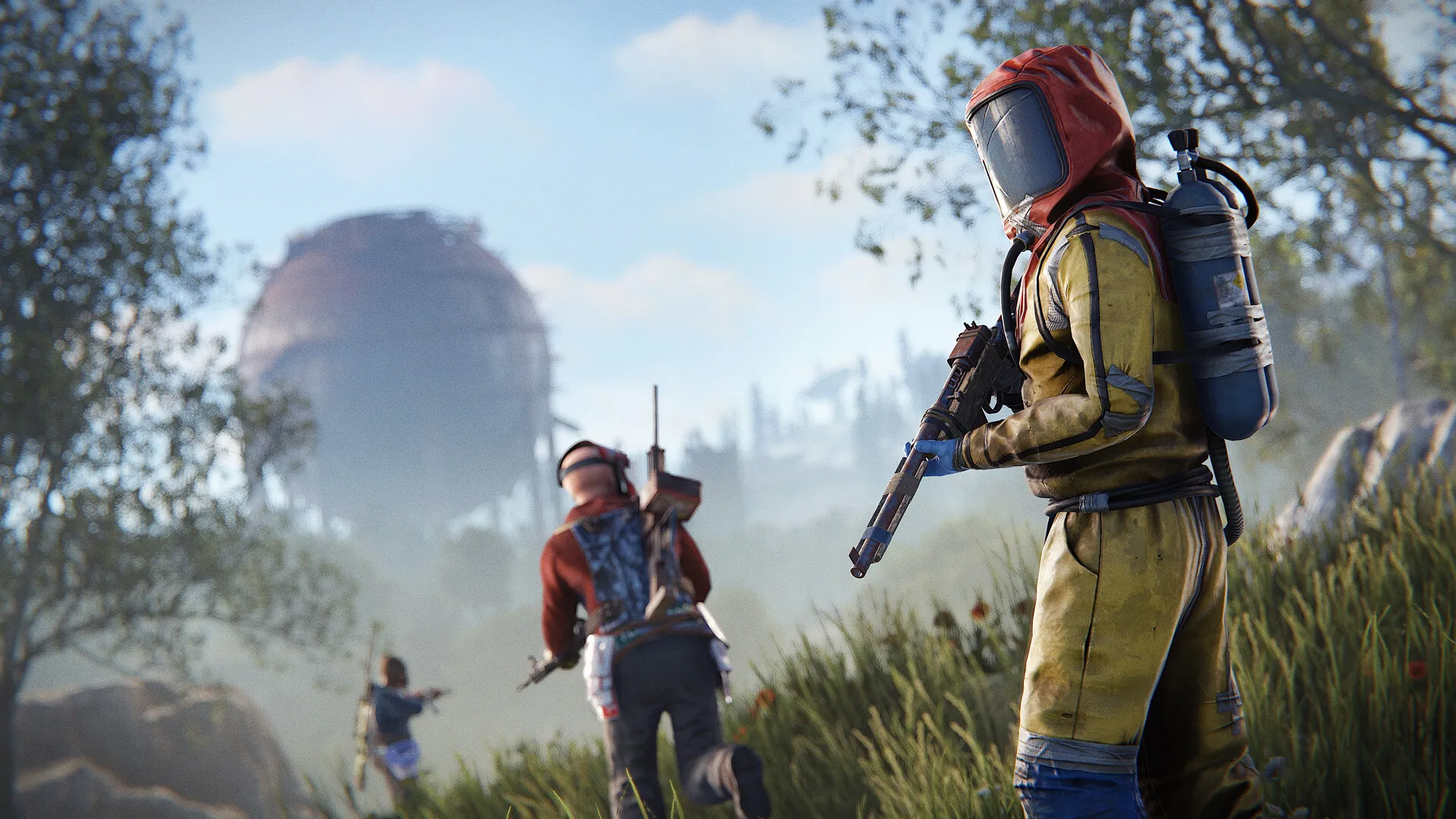
5. Managing Hunger, Thirst, and Health
Survival isn’t just about combat—it’s about maintaining vital stats.
Food and Water Sources:
- Hunt animals for meat, leather, and fat; fish for reliable food sources.
- Collect berries, mushrooms, and other edible plants to supplement diet.
- Boil water from lakes or rivers to avoid diseases.
Health Management:
- Use bandages, medkits, or syringes to heal injuries sustained in combat or falls.
- Avoid environmental hazards such as radiation or extreme temperatures.
- Regularly check status bars to prevent sudden death from neglect.
Pro Tip: Always carry a small stockpile of food, water, and medical supplies when exploring or raiding. It could be the difference between life and death.
6. Combat and PvP Survival
Combat is unavoidable in Rust, and understanding PvP mechanics is crucial to surviving encounters with other players.
Preparation for Combat:
- Carry a combination of ranged and melee weapons.
- Equip armor and shields to reduce damage.
- Stock up on grenades, explosives, and traps for base defense.
Engagement Strategies:
- Use terrain and cover to your advantage. Hills, trees, and buildings can protect you from enemy fire.
- Avoid engaging multiple players unless confident in your weaponry and position.
- Learn weapon recoil, aiming, and movement patterns to increase accuracy in fights.
Avoiding Unnecessary Conflict
- Stealth and observation are as valuable as combat skills.
- Scout hostile areas before approaching and retreat if outnumbered.
- Use distraction tactics or traps to weaken enemies before engagement.
7. Exploring Monuments and High-Risk Areas
Monuments provide access to high-tier loot but attract other players, making them dangerous.
Preparation:
- Bring high-quality weapons, armor, and healing items.
- Team up with allies to increase your chance of survival.
- Plan entry and exit strategies before engaging enemies or looting.
Looting Strategy:
- Avoid rushing into monuments; scout for enemy presence first.
- Use stealth to collect high-value items while avoiding detection.
- Expect ambushes and have escape routes prepared.
Recommended Monuments for Loot
- Launch Site: High-end weaponry and rare blueprints.
- Military Tunnels: Valuable metal, electronics, and crafting materials.
- Water Treatment Plant: Offers materials for building and crafting advanced items.

8. Team Play: Clans and Alliances
Forming alliances is one of the most effective ways to increase survivability.
Benefits of Team Play:
- Share resources and defend bases collectively.
- Participate in coordinated raids and strategic attacks.
- Protect each other from hostile players and environmental threats.
Team Strategies:
- Assign roles: gatherers, builders, combat specialists.
- Communicate regularly through voice chat or messaging.
- Pool resources to craft advanced gear and fortify bases.
Pro Tip: Only form alliances with trustworthy players; betrayal is common and can lead to devastating losses.
9. Raiding and Defense Strategies
Raiding is a core component of Rust, both for acquiring resources and defending your territory.
Raiding Tactics:
- Scout enemy bases carefully to identify weak points.
- Use explosives, ladders, and tools efficiently for faster entry.
- Raid during low-activity periods to minimize resistance.
Base Defense:
- Honeycomb structures and reinforced doors increase survival chances.
- Place traps, turrets, and external walls to delay attackers.
- Hide high-value loot in separate, secure rooms to protect assets.
Raid Prioritization
- Target lightly defended bases for easy rewards.
- Avoid heavily fortified bases unless well-prepared.
- Focus on acquiring rare resources and blueprints for progression.
10. Long-Term Survival and Strategy
Thriving in Rust requires strategic thinking, adaptability, and continuous improvement.
Progression:
- Upgrade bases, weapons, and armor as you gather more resources.
- Collect rare blueprints for advanced crafting and better survival tools.
- Participate in large-scale raids and territory control with your clan.
Adaptability:
- Learn from defeats and adjust strategies accordingly.
- Explore new areas for resources, crafting opportunities, and safe base locations.
- Balance risk and reward carefully to maximize gains without jeopardizing survival.
Pro Tip: Long-term success comes from mastering resource management, base defense, combat skills, and teamwork.
Conclusion
Rust challenges players to survive in a dynamic and dangerous world where every decision matters. From gathering resources and crafting tools to building secure bases, engaging in PvP combat, and participating in raids, survival requires skill, strategy, and teamwork. By mastering combat, exploring efficiently, managing resources, and forming reliable alliances, players can thrive in Rust’s harsh environment. Consistency, adaptability, and foresight are essential to dominating the game and enjoying the full depth of its survival mechanics.



